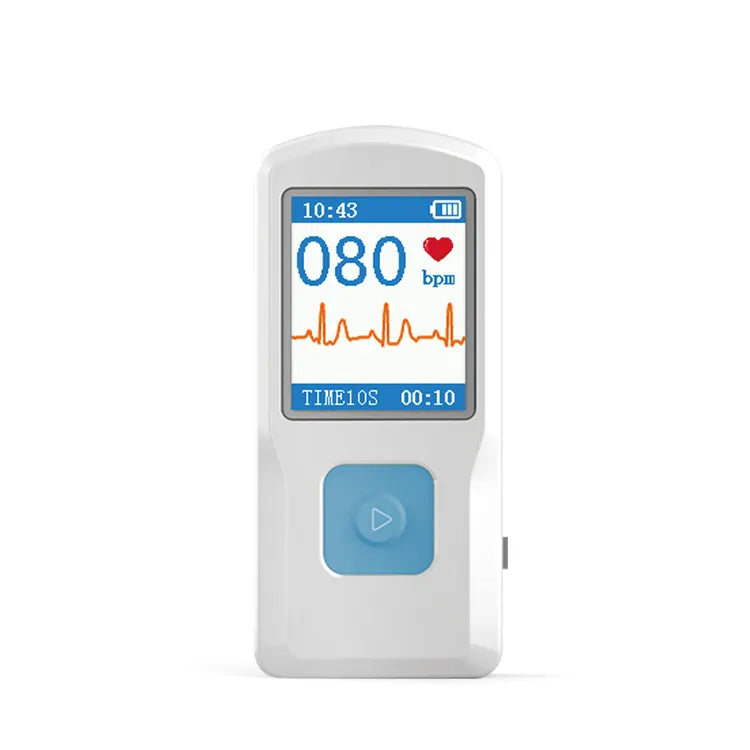Breaking Down Cholesterol Measurement Units: Understanding LDL, HDL, and Total Cholesterol

 Are cholesterol measurement units like LDL, HDL, and total cholesterol leaving you confused? Don't worry, we're here to break it down for you. In this article, we'll explore these commonly used terms and help you understand what they mean for your health.
Are cholesterol measurement units like LDL, HDL, and total cholesterol leaving you confused? Don't worry, we're here to break it down for you. In this article, we'll explore these commonly used terms and help you understand what they mean for your health.
LDL, or low-density lipoprotein, is often referred to as the "bad" cholesterol. It tends to build up in the arteries, increasing the risk of heart disease. On the other hand, HDL, or high-density lipoprotein, is considered the "good" cholesterol. It helps remove LDL from the arteries, reducing the risk of heart disease.
Total cholesterol is the sum of both LDL and HDL cholesterol levels, providing an overall picture of your cholesterol health. Knowing your cholesterol measurements is essential for managing your cardiovascular health and reducing the risk of heart-related conditions.
By understanding the different cholesterol measurement units, you can take proactive steps towards maintaining a healthy cholesterol level. So, let's dive into the world of LDL, HDL, and total cholesterol and make sense of these vital numbers.

What is LDL cholesterol?
LDL, or low-density lipoprotein, is often referred to as the "bad" cholesterol. It tends to build up in the arteries, increasing the risk of heart disease. Understanding LDL cholesterol is crucial for managing cardiovascular health.
LDL cholesterol is produced by the liver and transported to various cells in the body. However, when there is an excess of LDL in the bloodstream, it can accumulate in the arterial walls, leading to the formation of plaque. This process is known as atherosclerosis and can restrict blood flow, increasing the risk of heart attacks and strokes.
To interpret LDL cholesterol levels, it's essential to know the optimal ranges. The American Heart Association recommends keeping LDL levels below 100 mg/dL for individuals at low risk of heart disease. For those at higher risk, the target is even lower, usually below 70 mg/dL. Regular monitoring and management of LDL cholesterol levels are key to preventing cardiovascular complications.
Understanding the role of LDL cholesterol in heart health

LDL cholesterol plays a significant role in heart health. While it is often labeled as "bad" cholesterol, it serves essential functions in the body. LDL transports cholesterol from the liver to various cells to support cellular functions. However, when LDL levels are high, it can lead to the buildup of cholesterol in the arteries, causing atherosclerosis.
Atherosclerosis occurs when the arterial walls become narrow and stiff due to the buildup of plaque. This restricts blood flow and can lead to serious complications such as heart attacks and strokes. Therefore, it is crucial to manage LDL cholesterol levels to reduce the risk of these conditions.
Reducing LDL cholesterol can be achieved through lifestyle changes such as adopting a heart-healthy diet, exercising regularly, maintaining a healthy weight, and quitting smoking. In some cases, medication may also be prescribed to help lower LDL levels. Working closely with your healthcare provider to develop a personalized plan is essential for managing LDL cholesterol effectively.
Interpreting LDL cholesterol levels and ideal targets

Interpreting LDL cholesterol levels involves understanding the optimal ranges for different individuals. The guidelines provided by medical organizations can serve as a reference point for determining ideal targets.
For individuals at low risk of heart disease, an LDL level below 100 mg/dL is generally considered optimal. This range helps maintain cardiovascular health and reduces the risk of complications. However, for those at a higher risk, such as individuals with existing heart conditions or multiple risk factors, a lower target of below 70 mg/dL may be recommended.
It is important to note that LDL cholesterol levels should not be considered in isolation. Other risk factors, such as age, family history, smoking, and blood pressure, should also be taken into account when determining individual targets. Regular monitoring and adjustments to lifestyle and medication, if necessary, are crucial for managing LDL cholesterol effectively.
What is HDL cholesterol?

HDL, or high-density lipoprotein, is often referred to as the "good" cholesterol. Unlike LDL cholesterol, HDL helps remove excess cholesterol from the bloodstream and transport it back to the liver for disposal. Having higher levels of HDL is generally associated with a lower risk of heart disease.
HDL cholesterol acts as a scavenger, picking up excess cholesterol from the arterial walls and transporting it to the liver for excretion. This process, known as reverse cholesterol transport, helps reduce the buildup of plaque in the arteries and promotes cardiovascular health.
Interpreting HDL cholesterol levels involves understanding the optimal ranges. Higher levels of HDL are generally considered beneficial for heart health. For men, an HDL level of 40 mg/dL or higher is considered desirable, while for women, an HDL level of 50 mg/dL or higher is recommended.
Understanding the role of HDL cholesterol in heart health

HDL cholesterol plays a crucial role in heart health by actively removing excess cholesterol from the bloodstream. This process helps prevent the buildup of plaque in the arteries, reducing the risk of atherosclerosis and related complications.
In addition to its role in reverse cholesterol transport, HDL cholesterol also possesses anti-inflammatory and antioxidant properties. These properties help protect the arterial walls from damage and promote overall cardiovascular health.
Boosting HDL cholesterol levels can be achieved through various lifestyle modifications. Regular exercise, maintaining a healthy weight, and avoiding smoking are all beneficial in raising HDL levels. Additionally, consuming healthy fats, such as those found in olive oil, avocados, and fatty fish, can also help increase HDL cholesterol.
Interpreting HDL cholesterol levels and ideal targets
Interpreting HDL cholesterol levels involves understanding the optimal ranges for different individuals. Higher levels of HDL are generally associated with a lower risk of heart disease.
For men, an HDL cholesterol level of 40 mg/dL or higher is considered desirable, while for women, a level of 50 mg/dL or higher is recommended. These targets serve as guidelines for maintaining good cardiovascular health.
It's important to note that HDL levels should not be considered in isolation. Other risk factors, such as LDL cholesterol levels, blood pressure, smoking, and family history, should also be taken into account when assessing overall cardiovascular risk. Regular monitoring and lifestyle modifications can help improve HDL cholesterol levels and reduce the risk of heart-related conditions.
What is total cholesterol?

Total cholesterol is the sum of both LDL and HDL cholesterol levels. It provides an overall picture of your cholesterol health and helps assess your risk of developing heart-related conditions.
When evaluating total cholesterol levels, it's important to understand the optimal range. The American Heart Association recommends keeping total cholesterol levels below 200 mg/dL. However, it's important to note that total cholesterol alone is not a definitive indicator of cardiovascular risk. It should be considered alongside other factors such as LDL and HDL cholesterol levels, blood pressure, and family history.
Monitoring total cholesterol levels is an essential part of managing cardiovascular health. Regular check-ups and discussions with your healthcare provider can help you understand your individual risk factors and develop a personalized plan for maintaining healthy cholesterol levels.
Understanding the significance of total cholesterol levels
Total cholesterol levels provide valuable insights into your cardiovascular health. By assessing the balance between LDL and HDL cholesterol, total cholesterol levels help determine your risk for developing heart-related conditions.
High total cholesterol levels, especially when accompanied by elevated LDL cholesterol, can increase the risk of atherosclerosis and related complications. Conversely, having a favorable ratio of HDL to total cholesterol indicates a lower risk of heart disease.
Managing total cholesterol levels involves adopting a heart-healthy lifestyle. This includes following a balanced diet, engaging in regular physical activity, maintaining a healthy weight, and avoiding smoking. In some cases, medication may also be prescribed to help manage cholesterol levels effectively.
Regular monitoring of total cholesterol levels, along with other lipid profiles, is essential for assessing cardiovascular risk and taking proactive steps towards maintaining heart health.
Conclusion: The importance of monitoring and managing cholesterol levels
Understanding LDL, HDL, and total cholesterol is crucial for managing cardiovascular health and reducing the risk of heart-related conditions. LDL cholesterol, often referred to as the "bad" cholesterol, can lead to the buildup of plaque in the arteries. On the other hand, HDL cholesterol, the "good" cholesterol, helps remove excess cholesterol from the bloodstream.
Monitoring and managing cholesterol levels involve interpreting LDL, HDL, and total cholesterol measurements and understanding the optimal ranges. Regular check-ups, lifestyle modifications, and, if necessary, medication can help maintain healthy cholesterol levels and reduce the risk of heart disease.
By taking proactive steps towards managing cholesterol, you can protect your heart health and promote overall well-being. Remember to consult with your healthcare provider to develop a personalized plan tailored to your individual needs and risk factors.
So, dive into the world of LDL, HDL, and total cholesterol, and make sense of these vital numbers. Your heart will thank you.
This blog article provides a comprehensive understanding of cholesterol measurement units, including LDL, HDL, and total cholesterol. By breaking down each term and explaining their roles in heart health, readers gain valuable insights into managing their cholesterol levels effectively. The article emphasizes the importance of regular monitoring, lifestyle modifications, and personalized healthcare plans to maintain optimal cholesterol levels and reduce the risk of heart-related conditions.
Explore More Blogs
The Promising of Cholesterol Testing
What Advantages Of A Portable Mesh Nebulizer?
Hemoglobin Meter: Let's help people to monitor anemia
How to choose a better digital thermometer
Digital Pregnancy Test : Assisting Couples in Conceiving
Portable Fetal Doppler: Bonding with Your Baby
Reference Article
The Recommended Cholesterol Levels by Age Last medically reviewed on July 10, 2018.
Cholesterol Numbers and What They Mean Last reviewed by a Cleveland Clinic medical professional on 07/28/2022.
WE RECOMMEND
Related posts
- Subscribe MedInsights
- Subscribe MedInsights
- Subscribe MedInsights
- Subscribe MedInsights
- Subscribe MedInsights









